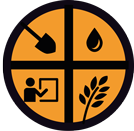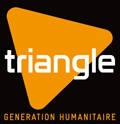AREA OF EXPERTISE

Multisectoral

AREA OF EXPERTISE

Multisectoral
FUNDING

In response to the earthquakes that occurred in April and May 2015, TGH, in partnership with ARSOW-Nepal, has set up an Integrated Global Reconstruction Programme (IGRP1) to provide an emergency response to affected households in the rural municipality of Panchpokari Thangpal (Thangpaldhap, Thangpalkot and Gunsakot villages - Sindhupalchok district).
In September 2016, TGH and its partner ARSOW-Nepal started the second phase of this programme (IGRP2), aimed at reconstructing houses and community infrastructure, rehabilitating drinking water and irrigation networks and providing economic support to the most vulnerable, still in Sindhupalchok district (in the 3 villages mentioned above as well as in the neighbouring village of Bothang).
The third phase (IGRP3) focuses more on the economic development of families and communities living in the rural municipality of Panchpokari Thangpal, where agriculture is the main source of income. This project aims to strengthen the operational and technical capacities of local actors and local communities in order to support their socio-economic transition initiated in the framework of the IGRP2, through three major axes of intervention.
The first axis aims to strengthen the capacities of local actors and to create a regional information centre in order to make local agricultural practices more sustainable. The creation of an agro-pastoral information centre gives producers access to technical information in terms of agriculture, animal husbandry and environmental preservation, national decisions and/or commercial indications on supply and marketing channels. In addition, the training of the members of the Rural Municipality in micro-project management and the training of technicians on the themes of resilient crops and environmental preservation helps to strengthen the skills of the actors in charge of supporting the socio-economic development of rural populations.
The second axis aims on to introduce and develop organic farming techniques through the creation of a model farm for the dissemination of organic production techniques, the training of "farmer leaders" in organic production, labelling procedures and marketing methods, support for the labelling of organic production and the creation of nurseries for the production of locally adapted seeds. Moreover, the organisation of a system of cooperatives at the level of the communes and the rural municipality aims to strengthen farmers' groups. The aim is to provide all producers with the information and means necessary to realise their project and ensure them a sufficient and sustainable source of income. At the same time, support is provided to producers to develop other products (radish, cabbage, chilli pepper, tea) for export. The development of the cooperative system and support for the sales channels for the marketing of these products helps to create an environment conducive to the development of the local economy.
Finally, the third axis will make it possible to strengthen forest users' committees in order to mitigate some of the effects of climate change with, among other things, support to intensify tree planting at the regional level in order to reduce rainwater runoff, to promote its infiltration, and thus create richer and more fertile soils in the long term. Reforestation also helps to protect certain roads from possible landslides, thus facilitating trade in the valley. In addition, the project includes prevention activities for natural disasters and climate change risks, environmental awareness raising activities and specific training on climate issues for members of cooperatives, forest user committees and community organisations.
The project also includes an EHA component to improve access to water, sanitation infrastructure and a healthy environment through the renovation and/or construction of water networks and public sanitary spaces, the creation of water management committees, awareness-raising activities on good hygiene practices, the development of a local household waste management plan, the implementation of individual and collective biogas systems and awareness-raising activities on renewable energies.
Capacity building of local actors (Rural Municipality, communes, farmers' cooperatives) and of our partner, ARSOW-Nepal, is an issue that the project is addressing, notably through training, mobilisation of human resources and field visits. This project follows a participatory methodology insofar as beneficiaries and local actors are directly involved in its implementation through coordination committees, where activities are discussed and designed. The consultation and community contribution to the project ensures ownership of the project by its beneficiaries and enables it to best meet their needs.